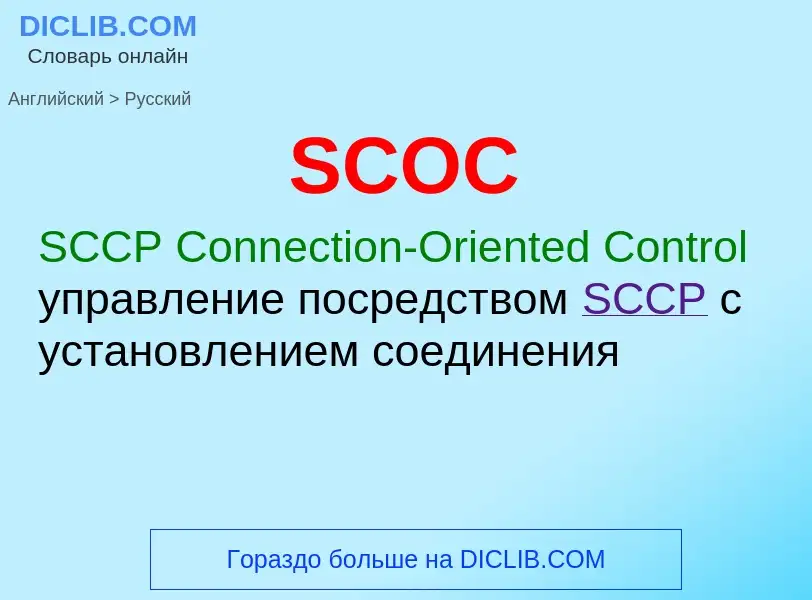Vertaling en analyse van woorden door kunstmatige intelligentie ChatGPT
Op deze pagina kunt u een gedetailleerde analyse krijgen van een woord of zin, geproduceerd met behulp van de beste kunstmatige intelligentietechnologie tot nu toe:
- hoe het woord wordt gebruikt
- gebruiksfrequentie
- het wordt vaker gebruikt in mondelinge of schriftelijke toespraken
- opties voor woordvertaling
- Gebruiksvoorbeelden (meerdere zinnen met vertaling)
- etymologie
SCOC - vertaling naar russisch
Definitie
Wikipedia

The Santa Cruz Operation, Inc. (usually known as SCO, pronounced either as individual letters or as a word) was an American software company, based in Santa Cruz, California, that was best known for selling three Unix operating system variants for Intel x86 processors: Xenix, SCO UNIX (later known as SCO OpenDesktop and SCO OpenServer), and UnixWare.
SCO was founded in 1979 by Larry Michels and his son Doug Michels and began as a consulting and Unix porting company. An early involvement with Microsoft led to SCO making a product out of Xenix on Intel-based PCs. The fundamental insight that led to SCO's success was that there was a large market for a standard, "open systems" operating system on commodity microprocessor hardware that would give business applications computing power and throughput that previously was only possible with considerably more expensive minicomputers. SCO built a large community of value-added resellers that would eventually become 15,000 strong and many of its sales to small and medium-sized businesses went through those resellers. This community was exemplified by the annual SCO Forum conference, held in a scenic setting that reflected the company's Santa Cruz culture. SCO also had corporate customers in the replicated sites space, where a SCO-based system was deployed in each of a retail or restaurant chain's stores.
Despite seeing rapid growth in terms of revenues, SCO tended to have high research and development costs and was never consistently profitable either before or after going public in 1993. SCO bought two former Xenix outfits, the Software Products Group within Logica in 1986 and HCR Corporation in 1990, thereby gaining development offices in Watford, England and Toronto, Canada. During the mid-1990s, SCO acquired two further UK companies, IXI Limited in Cambridge and Visionware in Leeds, which led to a suite of client-to-Unix integration products and then the Tarantella product line. SCO's operating system technology moved from Xenix to System V Release 3 as reflected by the products SCO Open Desktop and SCO OpenServer. In 1995, SCO bought the System V Release 4 and UnixWare business from Novell and, in collaboration with several hardware partners, the New Jersey development office it gained in the deal led a series of enhancements to the UnixWare product aimed at the high-end enterprise and data center spaces.
Beginning in the late 1990s, SCO faced increasingly severe competitive pressure, on one side from Microsoft's Windows NT and its successors and on the other side from the free and open source Linux. In 2001, the Santa Cruz Operation sold its rights to Unix and its Unix divisions to Caldera Systems. After that the corporation retained only its Tarantella product line, and changed its name to Tarantella, Inc. Caldera Systems became Caldera International and then changed its name to The SCO Group, which has created some confusion between the two companies. The company described here is the original Santa Cruz Operation. Although generally referred to simply as "SCO" up to 2001, it is now sometimes referred to as "old SCO", "Santa Cruz", or "SCO Classic" to distinguish it from "The SCO Group" to whom the U.S. trademark "SCO" was transferred.


